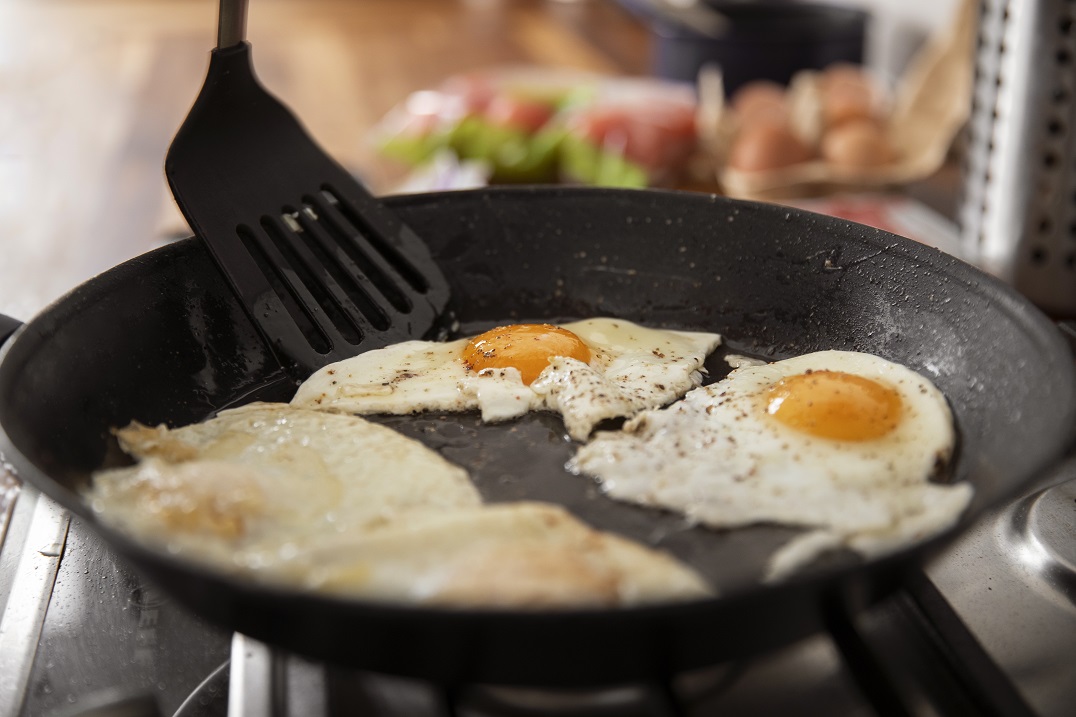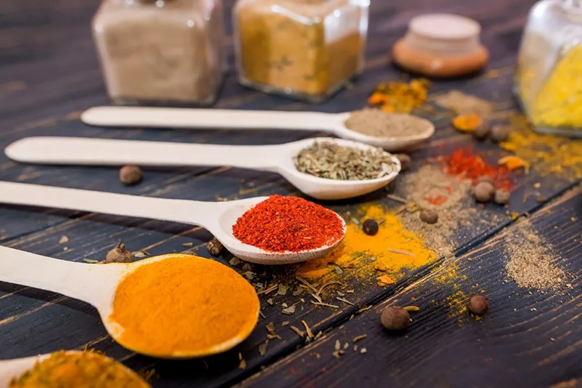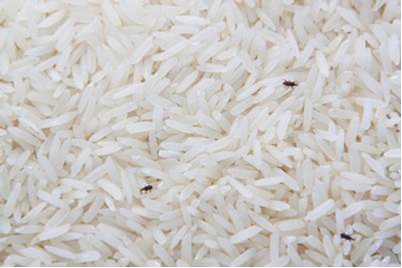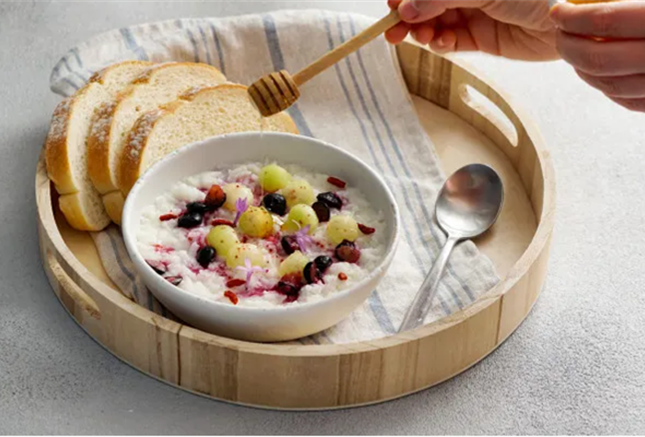Are Non-stick Pans Safe?
Studies so far have shown that PTFE is non-toxic and inert when used as a coating. However, when cooking temperatures are greater than 260 °C, PTFE can start to produce fumes. Such temperatures can be reached when pans are pre-heated empty for too long, i.e. more than a few minutes. When pans are overheated beyond 350 °C, the coating begins to break down to release harmful gases that can even be lethal in extreme cases.
In the past, the manufacture of older non-stick pans used to include a chemical called perfluorooctanoic acid (PFOA), which turned out to be a type of persistent organic pollutant called per- and polyfluoroalkyl substances (PFAS). You may have heard of them as ‘ forever chemicals’. Some studies have linked PFAS to various health issues such as immune system dysfunction, hormone disruption, decreased fertility, and an increased risk of certain cancers.
However, since then, most manufacturers have replaced PFOA with safer chemicals. The non-stick cookware from reputable brands now are PFOA-free.
Damaged Non-stick Pans Should Not Be Used
While modern non-stick pans are quite safe when used properly, be careful not to use these when the coating is damaged. For example, the coating could be damaged due to long time usage, or abrasion or scratching by hard objects during cooking and washing.
Using a pan with damaged coating can cause your food to be contaminated by PFAS, micro- and nanoplastics.
How should Consumers use Non-stick Pans Safely?
Do not preheat an empty pan as it can reach high temperatures within minutes, releasing polymer fumes. Make sure you have some food or liquid, such as oil or water, in the pan before heating.
Avoid cooking on high heat. Cook on medium or low heat. If you wish to use high heat or broil with a direct flame e.g. aburi-style with ablowtorch, use a regular un-coated metal pan.
Ventilate your kitchen during cooking by turning on the exhaust fan or opening the windows to help clear any fumes.
Use wooden, silicone, or plastic utensils instead of metal utensils to avoid scratching the non-stick coating.
Wash gently with a soft sponge and soapy, warm water. Avoid using steel wool or scouring pads to avoid scratching the coating.
Replace old cookware when the coatings start to visibly deteriorate with excessive scratches, peeling, flaking, and chipping.
Consider alternatives like stainless steel, cast iron, stone and ceramic cookware.
References
PTFE-coated non-stick cookware and toxicity concerns: a perspective. Environ. Sci. Pollut. Res. 24 (30), 23436–23440, 2017
Trends in the Regulation of Per- and Polyfluoroalkyl Substances (PFAS): A Scoping Review, Int. J. Environ. Res. Public Health 2021, 18, 10900.
Dietary and inhalation exposure to nano- and microplastic particles and potential implications for human health. Geneva: World Health Organization; 2022.
About the author
Mr Ang Wei Min is a Specialist Team Lead from the Food Science Rapid Response Department of the National Centre for Food Science. He has a M.Sc. in Chemistry from the National University of Singapore and is currently responsible for matters related to food contact material.




